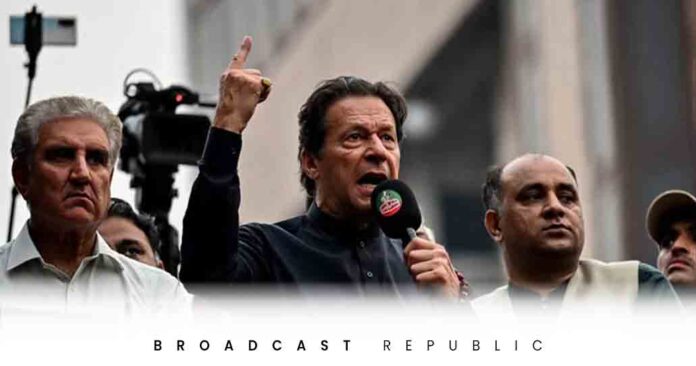On Tuesday 31st January 2023, the provincial court in Islamabad decided to summon Imran Khan the Chairman of Pakistan Tehreek-e-Insaf (PTI) in the Toshakhana case. The orders were given by the judge when Imran Khan didn’t appear in court for the hearing.
7th February is the given date by Zafar Iqbal, Additional Sessions Judge on listening to the criminal proceedings against the PTI leader.
When the hearing began, the judge demanded power of attorney from Ali Bukhari, Imran Khan’s lawyer.
However, before the court proceedings began when Imran Khan’s lawyer claimed the power of attorney, the Election Commission of Pakistan (ECP) said that it cannot be submitted until Imran Khan did not appear in person. Further, the court was instructed by the ECP to issue arrest warrants for Imran khan, the former Prime minister.
In the meantime, the lawyer Bukhari told the judge that “they had submitted the medical certificate of their client in the last hearing.”
Further, he added that “Barrister Ali Gohar, the senior counsel for the PTI chief, was coming to the court in five minutes.”
On this statement, Bukhari was demanded by the court to submit the power of attorney today, i.e., 31st January 2023.
The court was notified by the ECP’s Lawyer that Imran khan’s lawyer cannot submit the power of attorney until the surety bonds are not submitted. For confirming that the PTI leader will come to the court.
However, the PTI leader was directed to submit surety bonds of Rs. 20,000 as the court denied the request of the commission. The surety bonds are demanded to assure that Imran khan will be present in the next hearing
Disqualification
In 2022, in Toshakhana reference, ECP agreed on the judgment, Imran Khan was disqualified and was declared not to be a member of the National Assembly.
The ECP stated that the “PTI chief had submitted a false affidavit and was found involved in corrupt practices under Article 63(1)(p).”
In the verdict, ECP also declared that Khan had made “false statements and incorrect declarations, therefore he has also committed the offense of corrupt practices defined under Sections 167 and 173 of the Elections Act, 2017.”
It added that the offense was “punishable under Section 174 of the Elections Act, 2017, and directed legal proceedings and follow-up action under Section 190(2) of the Elections Act.”

